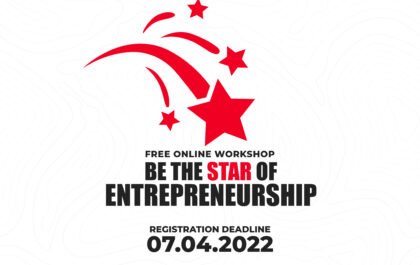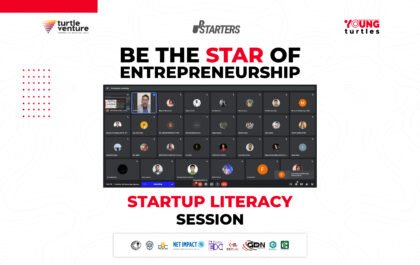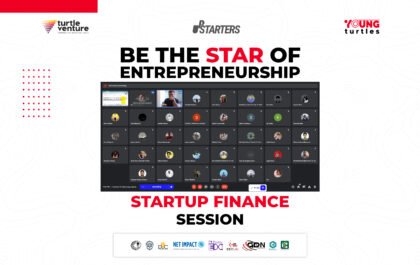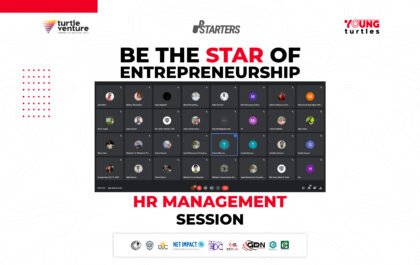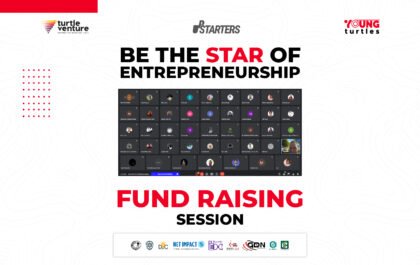She tart Up is a word that we hear consistently in the corporate world . Though we already acquainted with Facebook , Uber and some other most popular start-ups. But one might be wonder what is a start-up company, exactly? And what are the characteristics and features that these and other businesses share that characterize start-ups.
What is A Start Up?
A startup is mainly a business or company founded by its founders around an idea or problem with a possible solution for significant market opportunity. Even before that, the actual production always begins with a quest for an idea or a significant issue worth addressing and creating a dedicated founding team aligned with a common mission to make the vision into reality.
The word startup is often related to a company that is usually technology-oriented and has high potential for growth.Startups, especially in terms of funding, have some specific challenges. That’s because investors are searching for the highest possible return on investment, while balancing the risks involved.
The thing about Start-up is that this term does not have a precise description, as this meaning is very extensive. According to Neil Blumenthal who is a co-founder and co-CEO of Warby Parker:
“A startup is a company working to solve a problem where the solution is not obvious and success is not guaranteed”
To define the whole philosophy behind this concept, we need to understand what are the key Principles of a Start up? There are some features that all startups have in common :
Innovation
Innovation is the key in a start-up ‘s growth, so this factor should be seriously regarded by all entrepreneurs. In order to gain competitive advantage in the industry, a company such as this type needs to have a differentiator rivalry. It is creativity that could be present in their products or in the company-related business model.
Fast-Paced
Whether it’s quickly taking decisions and shifting goals, or rising and scaling the organization in a concentrated period of time, things move quickly at start-ups.
The Age
A start-up is a new business that is still in the early stages of brand management , sales and employee recruiting. Too frequently, this definition is allocated to companies that have been on the market for less than 3 years, but this is not valid. That is, you can have one business for 7 years and it’s still a start-up. So it depends not only on your age, but on a particular collection of features, to avoid being a startup.
Funding
Start-ups are generally self-funded or financed by venture capital funds or angel investments.What separates them from other sources of funding is that a relationship between investors and founders is often more prevalent. This is especially possible with angel investors, who might also give the start-up some mentoring or advice.
The Growth
Although a start-up can start life on a small scale as a one or two-person business, a start-up is a company that seeks to develop and scale rapidly to serve a wide market.The aim of a start-up is to develop and expand rapidly, often to dramatic proportions. This is one of the points that have differentiated a small company from startups.
Global view
One of the most important distinctions between a start-up and a small business is that a start-up features a concept which will be internationally developed and promoted. A small business, on the opposite hand, is connected to a selected location or industry. This is often why many start-ups are tech companies with goods or services needing just an online connection.
Limitations
start-ups are lean operations. There might be many issues like lack of planning, neglecting marketing and sells , lack of money or a combination of all three.
Uncertainty
Once a startup has shed a clear presence of creativity, there are still some associated uncertainties regarding ensuring the company’s sustainability. These companies, for this reason, are considered risk assets with a high rate of failure .Apart from that with so many innovations and concepts being carried out, some will succeed and some will not, risk and failure are key to start-ups.
Problem-solving
One of the main goals of a start-up is to address an issue with a new or enhanced product or service which is not limited. This also implies working without a simple direction or performance guidelines. So, through the product or service, they concentrate on making a difference not just in the marketplace but also in the lives of people.
Scalability
A start-up is a company in constant pursuit of a scalable and repeatable business model that can expand without the need to increase human or financial capital.
Registered business
To be a start-up, some suggest that you simply need to be a formally recognized organization, whether you’ve got just one or 10 team members. it is a business idea without the required paperwork and business status.
Work Team
These organizations are normally made up of a few individuals. While not the only deciding factor for startup classification, it is very popular for fewer than 100 individuals to identify it in your working team.
Flexibility
A Startup is very complex and ready to adapt to the problems that can arise. Since the business concept needs to be tested, these companies need to be able to adapt their product to suit consumer requirements. As there is a need to find a sustainable business model, this role is also present in the business model.
Does a Startup have to be technological ?
The link between this form of business and technology comes from the 1990s, since in “dotcom” businesses, the form of startup is more common. Although many of the start-ups that currently exist are technical in nature, the idea is not exclusive to them. It is searching for creative concepts that dramatically hit a vast number of people.
Now it is time to define the different types of companies that they can present after clarifying the issue of what a startup is. Because of the increased demand in this sector , it is important that potential entrepreneurs realize that there are styles of start-ups and that their idea fits in.
There are mainly 6 types of Start-Up :
Lifestyle Startups:
This form of startup can be classified for hobby lovers who work on their real passion. Typically, they are people who want to fulfill their needs by engaging in events that are entirely focused on what they like. Freelancers or web designers who have a passion for their work are also examples of this.
Buyable Startups :
They are born with the objective of being sold to big corporations after achieving positive outcomes that draw their attention. In web solutions development companies and mobile companies, this one form of startup is very popular. Like now a days the skill of software developers is growing rapidly, we see much more applications on the market. Perhaps the creators’ intention is to generate something new, but a tech company will inevitably acquire it at some point. We have Instagram, which was purchased by Facebook, as an example.
Startups for Social Entrepreneurship :
There are entrepreneurs who build a non-profit organization or a mixture of search profits, but their main aim is to better their community in particular. Social entrepreneurs goal is that, they want to make a difference and make a better society. The primary aim, therefore, is not to obtain profit, but to contribute positively to the society. We should not recognize them as a start-up because their business or company does not pursue profitability as a main objective. They plan to build a path to the development of wealth in order to create a better world. A charity or charitable organization is one example.
Scalable Startups :
Mainly founded by entrepreneurs who think that their business concept will change the world from the beginning and then worry about finding a scalable and repeatable business model to attract investors ‘ interest to improve the business. Google, Uber and Facebook are examples of these.
Small And Medium Sized Enterprise Startups:
The definition of small and medium-sized enterprises are often vague, since these sorts of enterprises are often categorized either by their size or by the quantity of profits they need . What they need in common is that to deal with one among their needs, these organizations start with the perfect of a founder or group of founders. so as to be considered start-ups, SMEs in their founding process don’t got to be very sophisticated firms. Starting new companies with a longtime business model is that the standard thanks to build capital. Example : hairdressing salons, grocery stores, bakeries, tailors etc .
Large company Startups :
These businesses have the primary goal of innovation and have a short life cycle. In Industry, goods or services evolve in this category that are easily recognized by the public by revolutionaries. In order to be more competitive and produce fresh revenue, big businesses had to innovate in new business models to help them accomplish those goals. Any new business created by a number of these companies is included in the category. However, because of market shifts, consumer demands and competitive conditions, these businesses seek to produce new creative products for new customers in various markets.
The thing about Start-up is that this term does not have a precise description, as this meaning is very extensive and dynamic.
Related posts
Subscribe for newsletter
* You will receive the latest news and updates on your favorite celebrities!
Young Turtles 2022 Workshop by Turtle Venture
Turtle Venture is here with a brand new workshop for you to join! The registration for Young Turtles 2022 is…
SHE LOVES TECH Bangladesh 2020
I f you’re a woman entrepreneur, then “She Loves Tech” would be a popular name for you, right? They will…
SELISE Coding Challenge 2020
A re you a coder? Are you bored in this quarantine while looking for opportunities to enrich or test your…
GP Accelerator Startup Talk Episode-1
D ue to COVID-19, it was like life almost had stopped in the earlier days. Though it’s not like that…
bKash Launches bTechWhiz to JumpStart Talent Hunt from University Graduates
The leading mobile financial services (MFS) provider in the nation, bKash, has started a program called “bTechWhiz” to find and…
“Be The Star of Entrepreneurship” Mentorship Sessions: Startup Literacy
The sixth mentorship session of “Be The Star of Entrepreneurship” 2022 was conducted on the 19th of April on Startup…
“Be The Star of Entrepreneurship” Mentorship Sessions: Startup Finance
The fifth mentorship session of “Be The Star of Entrepreneurship” 2022 was conducted on the 18th of April on Startup…
“Be The Star of Entrepreneurship” Mentorship Sessions: Product Design
The fourth mentorship session of “Be The Star of Entrepreneurship” 2022 was conducted on the 16th of April on Product…
“US Patent and Trademark Office Meets MSMEs and Startups” Session Held
A session was held recently on 10th May 2022; organized by iSocial Limited and facilitated by Turtle Venture- regarding…
“Be The Star of Entrepreneurship” Mentorship Sessions: HR Management
The latest mentorship session of “Be The Star of Entrepreneurship” 2022 was conducted on the 24th of April on HR…
“Be The Star of Entrepreneurship” Mentorship Sessions: Fund Raising
The latest mentorship session of “Be The Star of Entrepreneurship” 2022 was conducted on the 28th of April on Fund…
Bangladeshi Startups Getting $750 Million in Foreign Investment
In the last decade, the country has attracted over $750 million in foreign investment in the startup industry, according to…

